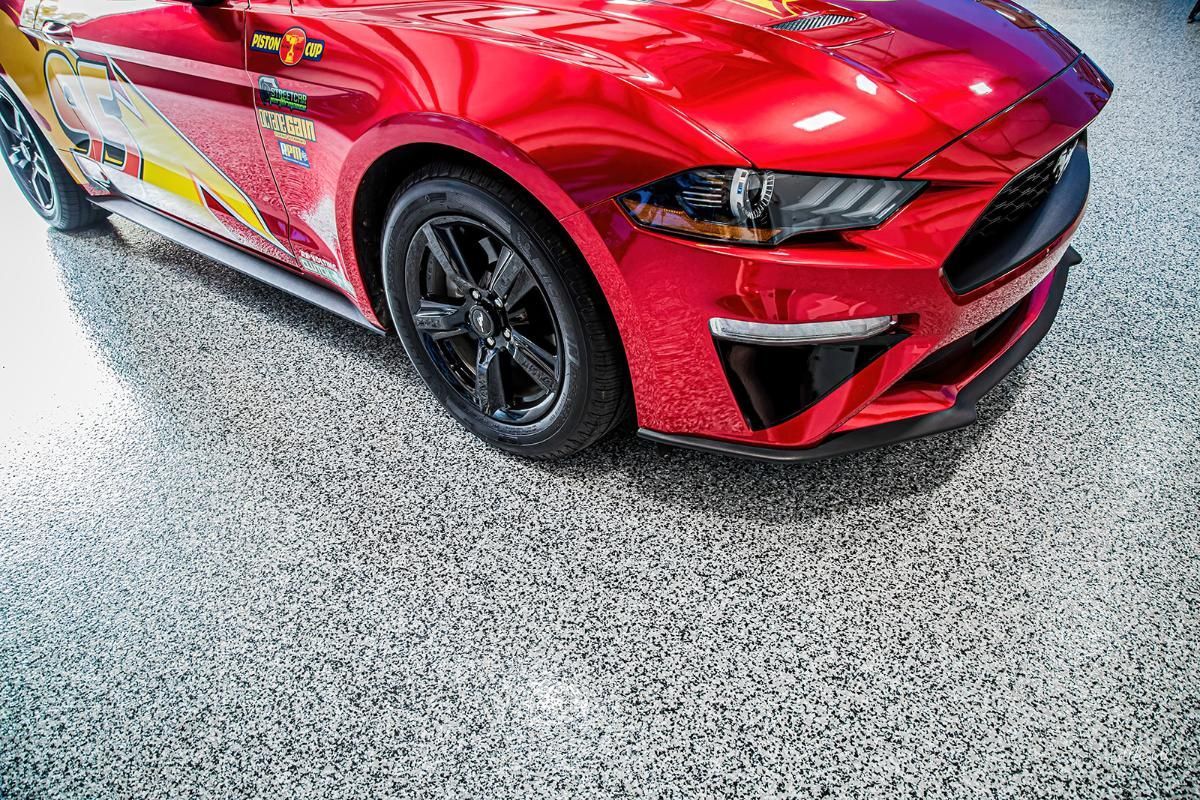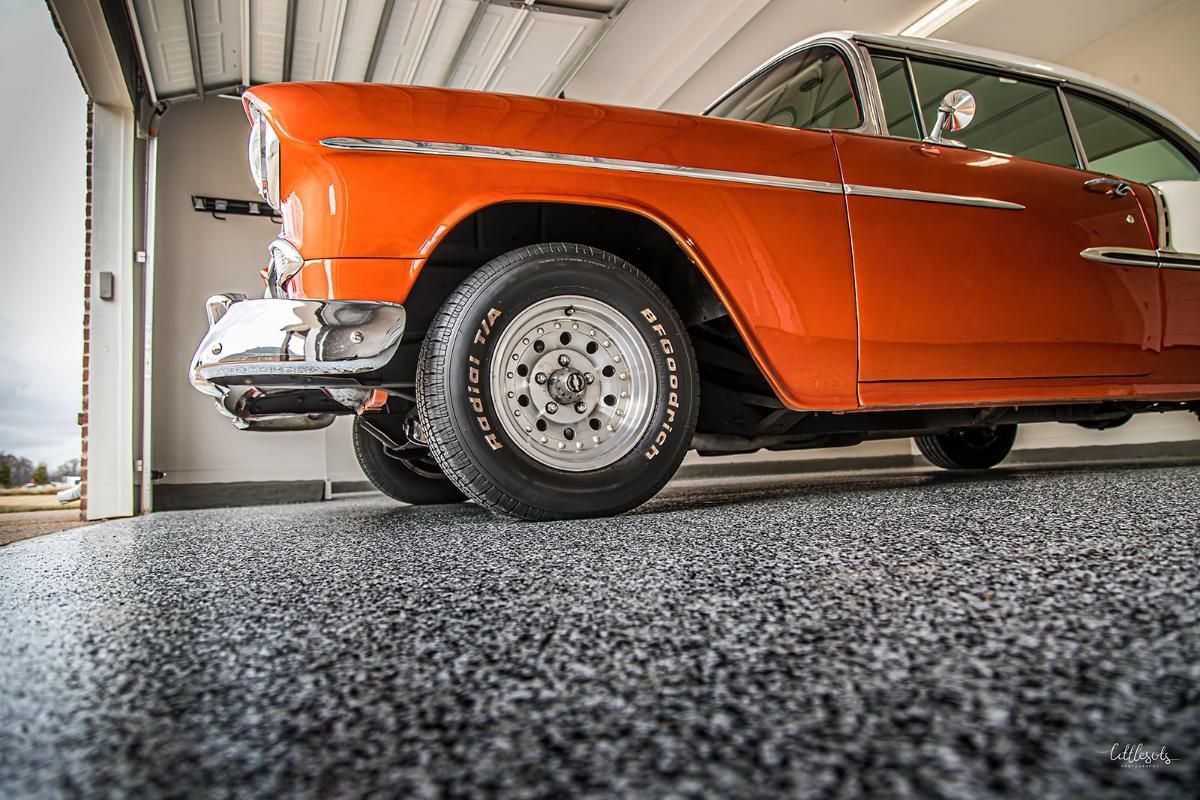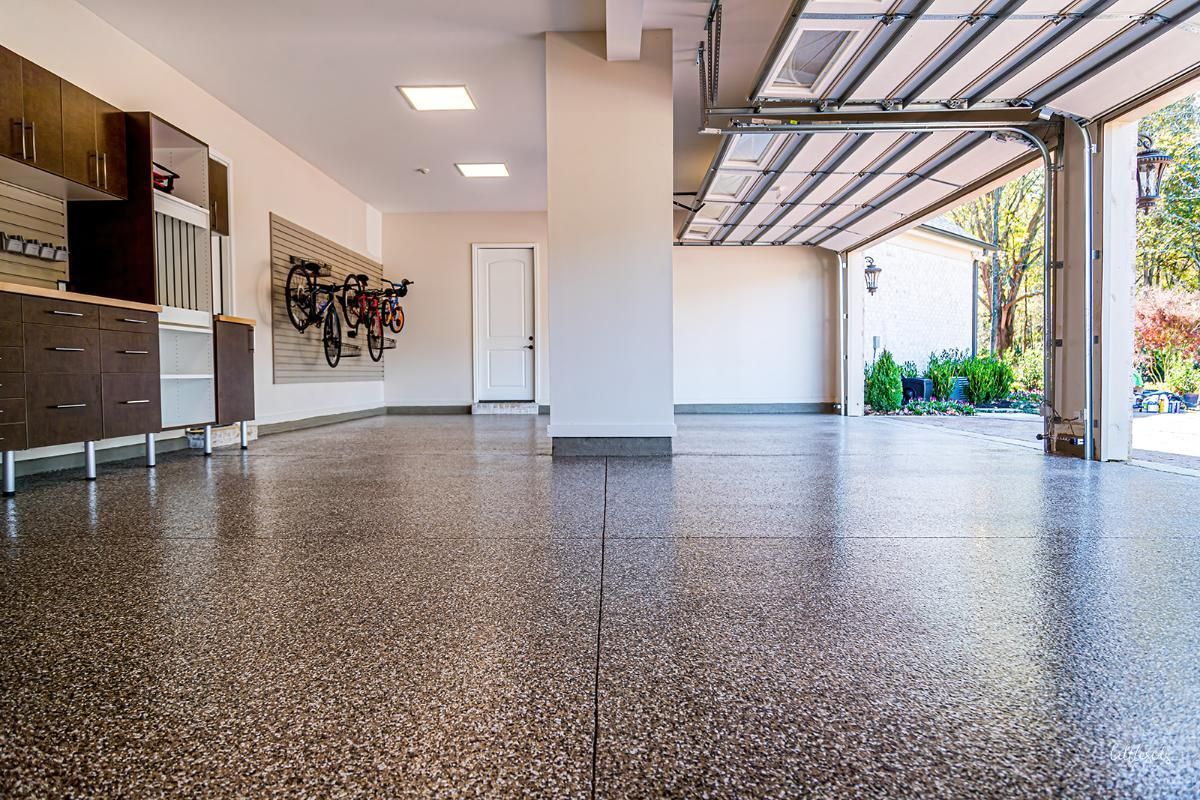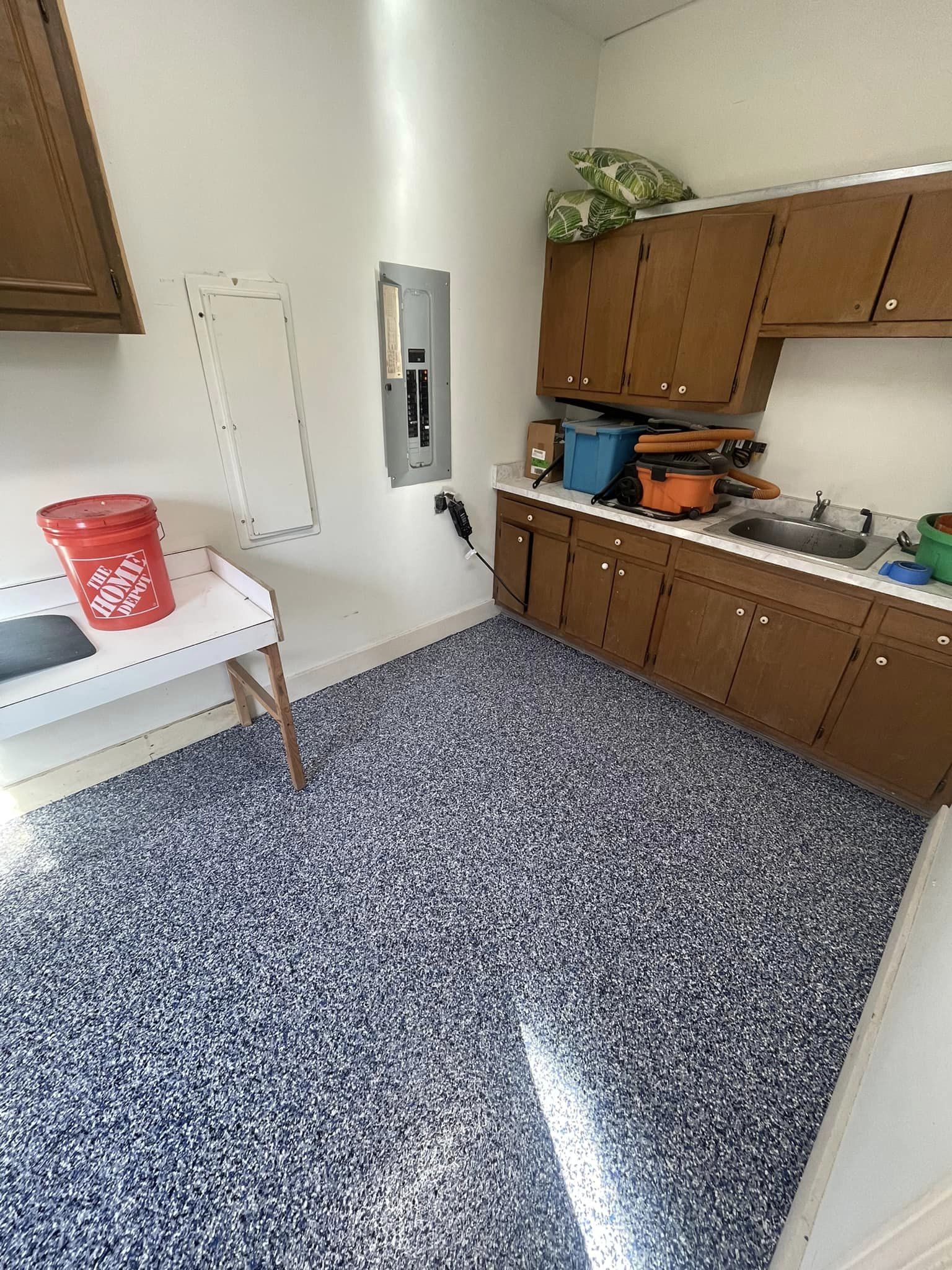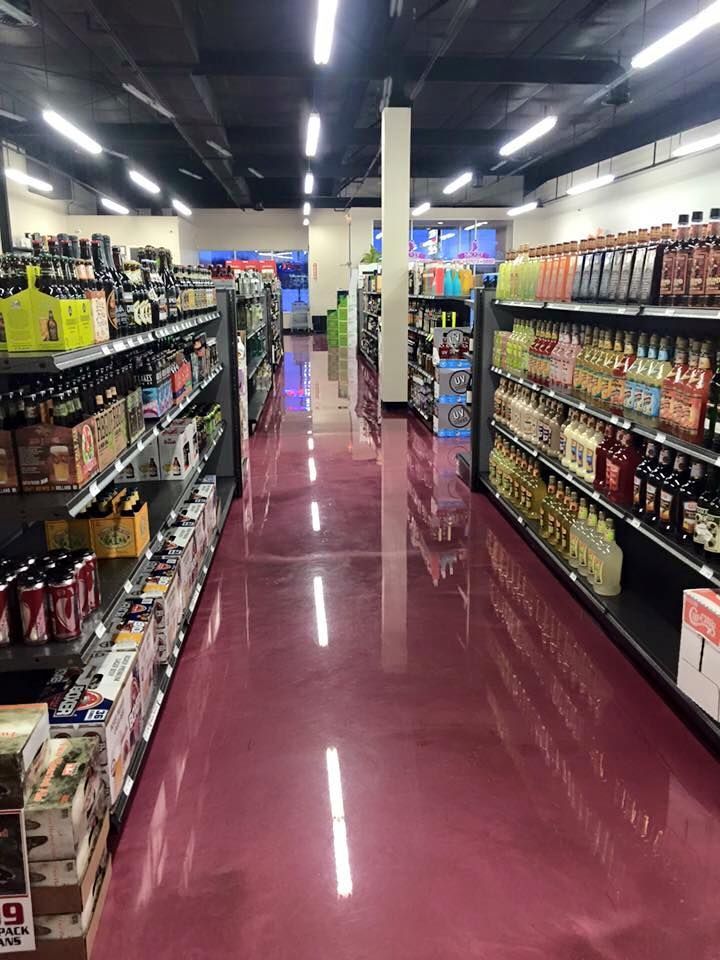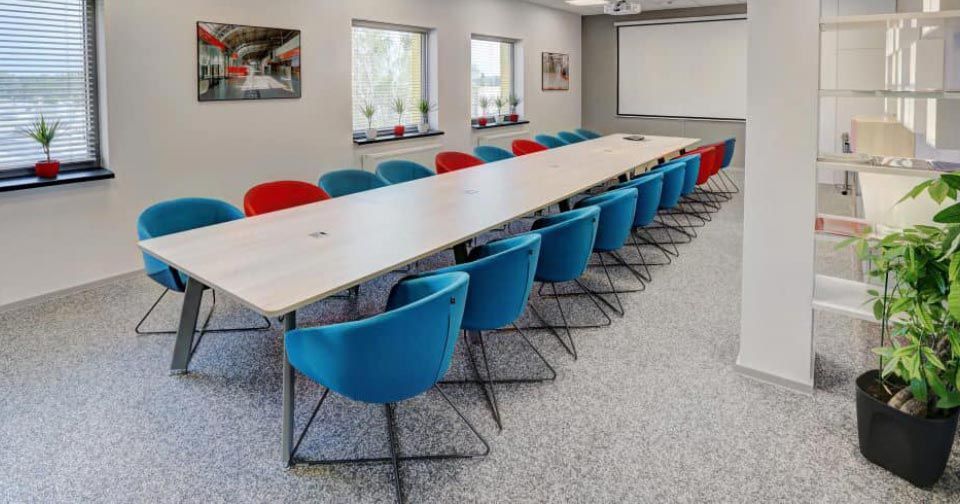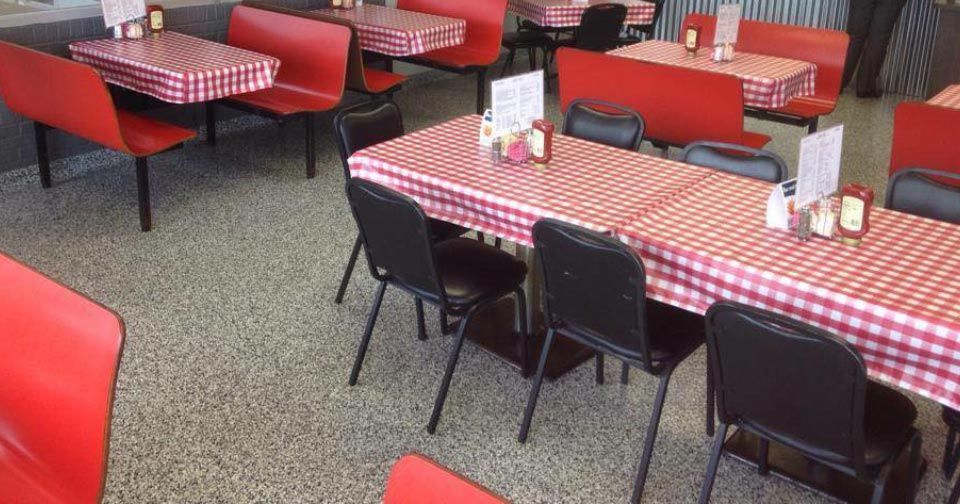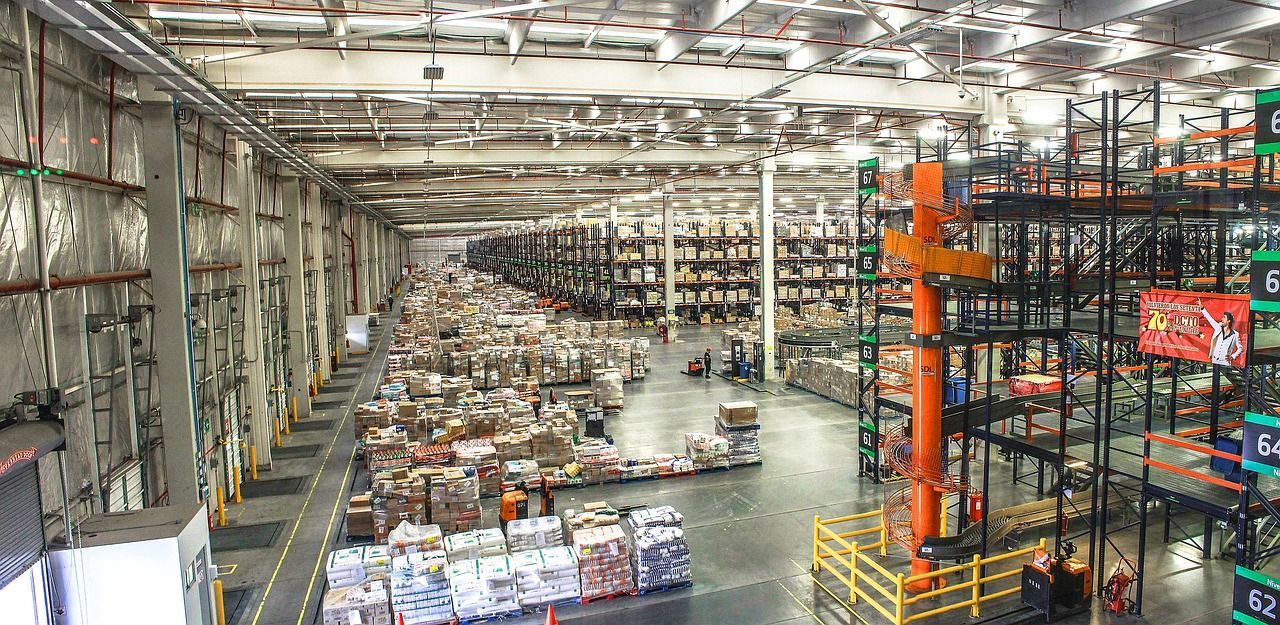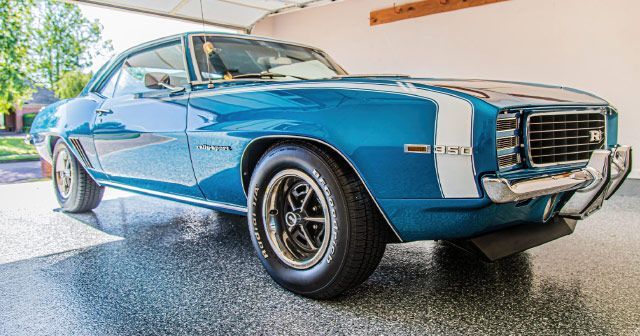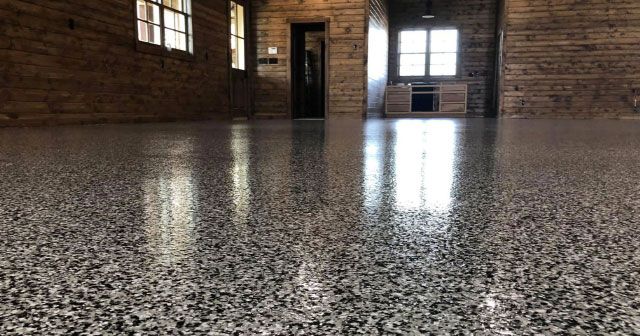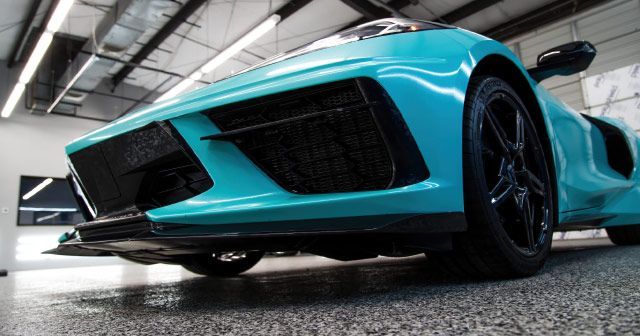What are Polyurea Concrete Floor Coatings?
Polyurea floor coatings are made from two major elements: an isocyanate and a resin blend. The two elements create a chemical reaction when mixed together and applied to a floor. The reaction causes the material to solidify and harden, becoming a strong flooring substance.
Polyurea Floor Coatings Make a Difference in Your Home or Business
While epoxy floors are popular, our polyurea epoxy floors are even better, which is perfect for commercial and industrial applications. Thanks to the addition of polymers, they can withstand heavier traffic and larger loads, and they’re easier to maintain and more difficult to damage. They’re also resistant to most chemicals.
To top it off, your floor will look great. Polyurea floor coatings may not be the flooring solution that you’re most familiar with, but if you’re in the market for a new floor, you can’t afford to overlook the many benefits of this option.
Polyurea floor coatings stand out not only for their durability but also for their remarkable speed of installation. Unlike traditional epoxy coatings that require longer curing times, polyurea coatings cure rapidly, reducing downtime and allowing you to resume regular operations in a shorter timeframe.
SCHEDULE A FREE ESTIMATE
Prefer to skip the visit?
Request a remote estimate instead.
The Polyurea Floor Coating Process
Another key difference between polyurea flooring and epoxy flooring is the application method and the time it takes to complete the flooring process. Epoxy is generally spread across the floor with a rolling brush, and while the time that the floor takes to harden is variable depending on the specific curing agent used, it takes days to fully cure.
Polyurea, on the other hand, is sprayed onto the floor space. The chemical reaction that causes hardening begins to occur as soon as the coating is applied, and the curing process is a matter of hours, not days. That makes polyurea a much better choice for someone who wants a new garage floor but can’t afford to give up their garage for a long period of time.
We follow a 5-step polyurea floor coating process to ensure your floor looks Good for years to come
- The process begins with a diamond grind surface. We use specialized equipment to abrade, or rough up, the surface of the concrete floor. This removes imperfections like rough spots or blemishes and makes the floor smooth.
- It’s followed by crack and chip repair. After the surface has been diamond ground, we repair any damage like cracks or chips with an epoxy filler. This further smooths out the floor to make it ready for the coating.
- Next, a pigmented adhesive base coat is applied. Here’s where we start adding the color with a base coat made from polyurea resin mixed with the pigment you’ve chosen. It will bond strongly to the concrete.
- It’s then followed by flakes in the size and style of your choosing. You can customize the look of your floor coating with a wide variety of flake colors. In addition to visual appeal, the flakes will add some texture, increasing slip-resistance.
- Finally, the floor is topped with a clear, durable topcoat. On top of everything will go a layer of clear polyurea to add shine and provide protection to the lower layers. The finish will be durable and can stand up to years of use.
How Do Polyurea Coatings Stack Up to Other Floors?
Polyurea coatings may not be your only option for floors, but they’re superior to other options for a number of reasons. Take a look at how our polyurea floors stack up to other flooring options:
Floor Replacement Experts When You Need Them
Our team understands the importance of a sturdy and reliable floor for residential and commercial properties. We have the skills and equipment required to expertly install your new polyurea floor coating at your home or commercial property. Our team will guide you through the process of choosing your flake and color blend and then handle the installation quickly and competently.
FAQ
What kinds of spaces are best for polyurea floors?
Our polyurea floor coatings are perfect for a variety of places. They’ll withstand heavy traffic, extreme weather, water, chemical spills, and more. Renovate your garage floor, create a man cave floor, finish your basement floor, or make a commercial property such as a car dealership, auto repair shop, retail store, or office building stand out from the crowd.
Begin Your Floor Design NoW
No matter where you want your new polyurea floor, getting started is as easy as contacting us and letting us know that you’re ready. We’ll schedule a free consultation so we can help you get your design underway.

CONTACT INFO
DEAS Garage Floors
12210 Dargie Dr,
Arlington, TN 38002
Phone
SCHEDULE A CONSULTATION
Contact us, and we will come out and discuss your project free of charge.
